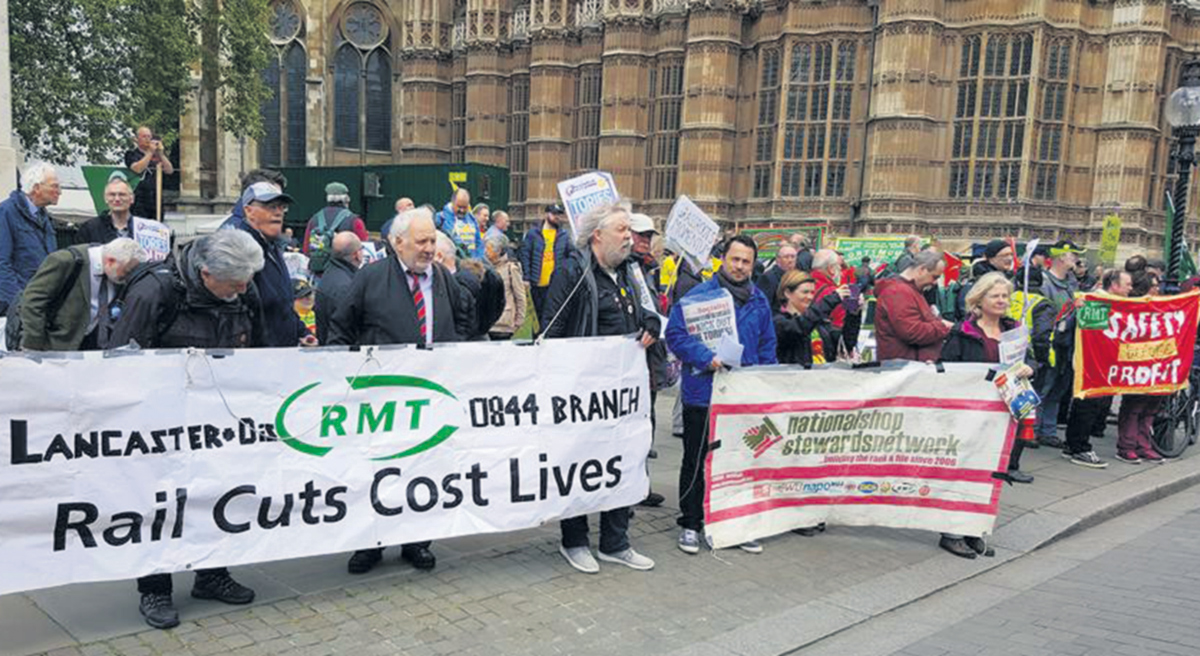Reader’s comment
Who wants driver-only operation?
Martin Pryor, train guard
If you take a cursory glance at the news these days, you will see problems on the railways – strikes, delays, timetable meltdown and so on.
But one thing that usually comes up is driver-only operation (DOO), which simply means a train with only a train driver sitting by themselves in the cab. Easy right?
Some people might not even think of the guard when they think about getting on a train. This can be for many reasons.
The role has different titles – guard, conductor, train manager, onboard supervisor and more. This has led to misunderstanding of what that role is for and why it is there in the first place.
A guard is there first and foremost to protect the welfare and safety of the passengers and crew, as well as to ensure the safe running of the train. This can be confused with additional duties such as checking tickets.
Face of the railway
For me, the guards’ role has always been the face of the railway system, whether for a regular commuter, a kid off to school or a tourist out for the day in the country. Passengers have the opportunity and the security of seeing a face, a human representative of this Victorian institution.
In the worst situations the guard is there, with extensive training and experience, to deal with whatever arises. We communicate not only with the driver, but with signallers, railway control and the emergency services. Mostly our job is to keep the travelling public safe and informed.
So, who wants to remove the guards and why?
Drivers don’t want to be abandoned to deal with an array of situations that they may have no experience in or training to deal with. Train drivers’ union Aslef calls for “no extension of DOO schemes or introduction of DOO in the form of ‘DCO’ or any other name.”
I have never spoken to a train crew manager who advocated DOO or could explain why it would be a good idea to take guards away. If a guard is non-essential, how essential can a manager’s job be?
The passengers overwhelmingly say no. A study showed that 93% of passengers thought guards increased safety and personal security. This is completely understandable at a time when violence is on the increase and sexual assaults on trains doubled from 2012 to 2017.
What could they expect to gain from losing a safety-critical trained member of staff? They would lose the route knowledge and experience of someone who, on average, has worked there for 12 years. Don’t even bother hoping for a helping hand with your suitcase, pram or wheelchair.
The prices would stay the same, or in this privatising, profiteering culture, I wouldn’t be surprised if they went up.
The only reason I can find to remove a guard is to save money on wages, to increase profits for the shareholders. The public-interest reasons that we need to keep guards far outweigh any monetary or profitability excuses.
The Conservative government wants to attack the strength of unions. It placed in the private tendering process for railway franchises a desire to remove and downgrade the rights and responsibilities of the safety-critical person on board. The government mentions that staff should be visible. But a driver sitting in a front train cab as they go past you on the platform may be ‘visible’!
I shudder to think of the number of millionaires railway privatisation has created. The cost has been borne by the taxpayer and commuter.
The government has the aim of giving over more of the public’s money and putting it straight into those millionaires’ pockets. All the while services decline, prices soar and jobs are lost.









